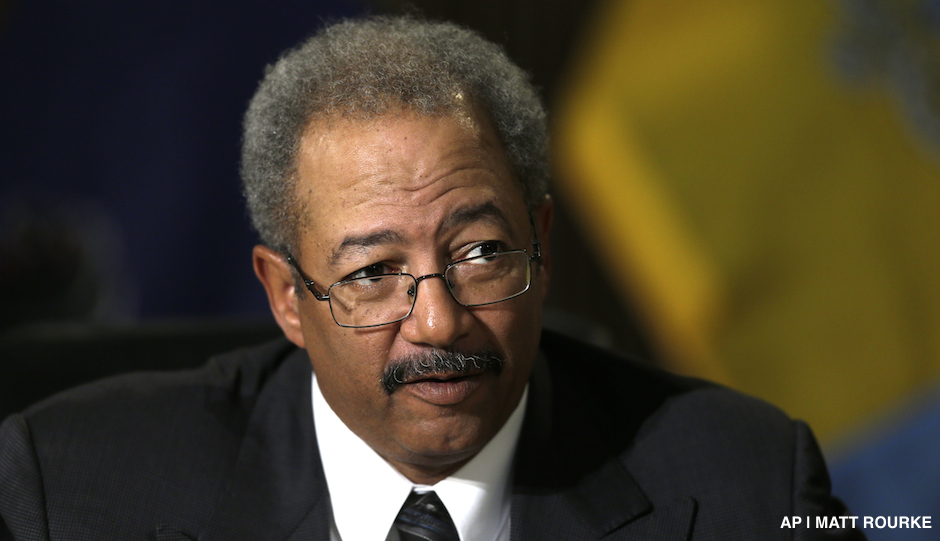Prosecutors One Step Closer to Seeing Fattah’s Emails
[Updated at 1:08 p.m.]
Federal prosecutors cleared a major hurdle in their attempt to pore over several years’ worth of Democratic U.S. Rep. Chaka Fattah’s personal emails before he goes to trial in May, thanks to a decision by an appeals court.
This July, Fattah was charged with using taxpayer and charitable funds to pay back an illegal $1 million campaign loan. Back in 2014, Fattah challenged a search warrant that the federal government served at Google seeking emails from his Gmail account, arguing that its execution would violate the “speech or debate” clause of the U.S. Constitution, among other things.
That clause is aimed at preventing prosecutors from targeting lawmakers because the executive branch disagrees with their political opinions. The Bipartisan Legal Advisory Group of the U.S. House of Representatives joined Fattah in his challenge before a district court.
But a panel of the U.S. Court of Appeals for the Third Circuit dismissed Fattah’s argument, saying it did not have jurisdiction. Judge Julio M. Fuentes wrote in the decision the speech or debate clause should not safeguard legislators from criminal investigations.
“We take seriously the sentiments and concerns of the Supreme Court that Members are not to be ‘super-citizens’ immune from criminal liability or process,” he said. “Permitting an interlocutory appeal of an order denying a motion to quash an unexecuted search warrant based on the Speech or Debate Clause would set bad precedent and insulate Members from criminal investigations and criminal process. This, of course, cannot and should not be the purpose of the Clause.”
Fattah’s attorney, Luther Weaver, said he and the Congressman have not yet made a decision about whether to appeal.
“We’re obviously disappointed in the opinion,” said Weaver. “We think that the Third Circuit is lagging behind other circuits, particularly the D.C. circuit in terms of ruling that the speech or debate clause privilege is a privilege of non-disclosure.”
Fattah also argued that only attorneys should be able to review his emails to determine if any are protected under attorney-client privilege. (He has maintained that some are privileged.) The U.S. District Court for the Eastern District of Pennsylvania had previously ruled that Department of Justice attorneys and prosecutors who were not on the case would make this call, but the federal appeals court agreed with Fattah on this point.
“Because of the legal nature of the privilege issues involved, we agree that the first level of privilege review should be conducted by an independent DOJ attorney acceptable to the District Court,” wrote Fuentes.
Fattah said he should be able to work with the agents to determine which emails are protected, and if there is a disagreement, that he should be able to make his case at a court ruling before the emails are provided to prosecutors. The federal appeals court ruled that issue is “more appropriately addressed by a district court in the first instance on a case-by-case basis” and “on remand, the District Court may thus, in its discretion, implement those procedures it deems necessary to protect Fattah’s privileges.”



